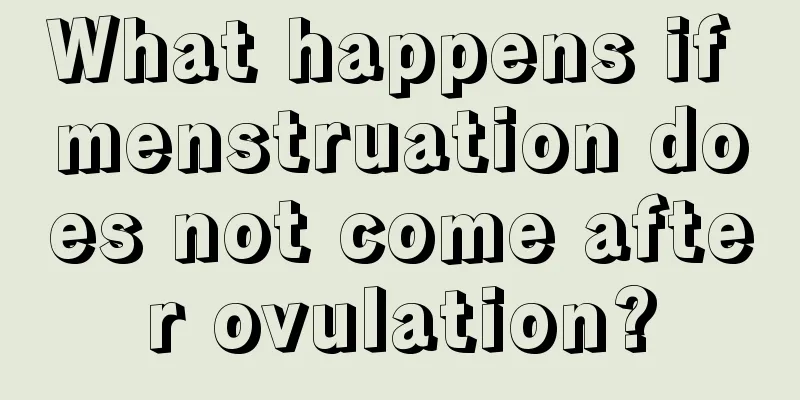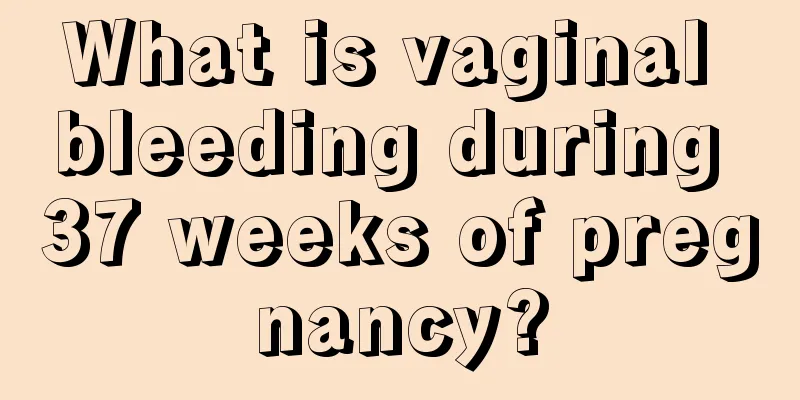What happens if menstruation does not come after ovulation?

|
The arrival of menstruation often marks the maturity of women. In order to get pregnant smoothly, people often pay more attention to the issue of ovulation. In fact, the ovulation period has a great relationship with the stability of menstruation. After trying some methods, some women successfully become pregnant, but some women find that their menstruation does not come after ovulation. When faced with this situation, they are usually panicked. So what exactly is the situation of not having menstruation after ovulation? Do you have the same confusion? Let’s find out together. Generally speaking, each menstrual period marks the release of a mature egg from the ovary. But in fact, some women have menstruation but cannot ovulate, which is medically called anovulatory menstruation. Without ovulation, of course, conception is impossible. Which women often experience anovulatory menstruation? Shortly after menarche, some women may have incomplete hypothalamic maturation or delayed maturation of the hypothalamic cycle center, resulting in imperfect regulation between the hypothalamic-pituitary-ovarian axis; or when they are overly nervous or tired; or because of chronic diseases that interfere with the normal regulation of menstruation, the ovaries may not ovulate but the uterus may bleed, which is anovulatory menstruation. Additionally, anovulation is common in women who are in menopause or premenopause. Due to the decline of ovarian function, the follicles cannot develop and mature, resulting in follicle exhaustion. At this time, the ovaries no longer perform the function of ovulation. Anovulatory menstruation has different manifestations. The most common one is irregular vaginal bleeding, which means that the interval between bleeding, the number of days it lasts and the amount of blood are all irregular. Sometimes there may be several months between two menstrual periods, which is called infrequent menstruation; sometimes bleeding occurs every few days. Generally speaking, menstruation with an interval of less than 21 days is often called anovulatory menstruation. After reading the above medical knowledge about absent menstruation after ovulation, I believe everyone has a better understanding of this issue. If menstruation does not come after ovulation, it may be pregnancy or other situations. At this time, don't panic. You should go to the hospital for a physical examination in time to see what the reason is. Then, according to the doctor's advice, pay more attention in daily life, get more rest, strengthen physical exercise, and strive to restore your body to normal. |
<<: What should women eat to nourish their kidneys?
>>: What are the dangers of women sleeping late
Recommend
Will I have back pain during the fifth or sixth day of pregnancy?
Women are very prone to problems in the early sta...
How is vulvar leukoplakia caused?
Women are often troubled by various gynecological...
Where is the cervical pain?
Most women will experience cervical pain in their...
Does toothpaste have any effect on pregnant women?
After pregnancy, pregnant women will have various...
What are the symptoms of heavy gynecological dampness?
Gynecological problems are difficult for modern w...
How often should cervical cancer screening be done?
Cervical cancer screening is a method of detectin...
What should you do if you encounter an autistic child in these situations?
Autism Problems Practice Edition. Pay attention t...
What effervescent tablets are used for vaginitis?
Although vaginitis is a common disease among wome...
Can I wash my vulva during menstruation?
During menstruation, many women feel very uncomfo...
Don’t let your eyes suffer if you spend too much time in the cinema during the holidays!
Comedy, science fiction, fantasy, animation... Th...
Why does appetite decrease during early pregnancy?
Women have a very good appetite when they just st...
What are the early symptoms of breast cancer?
Breast cancer can cause great damage to women'...
Breast cancer gene testing
The famous movie star Angelina Jolie underwent a ...
The recently popular "Winter Goes and Spring Comes Rice" is really recommended for you to try!
Spring is a season full of vitality and vigor. It...
How to treat yellow leucorrhea that is bean dregs-like
The leucorrhea is yellow and has a tofu-like cons...









